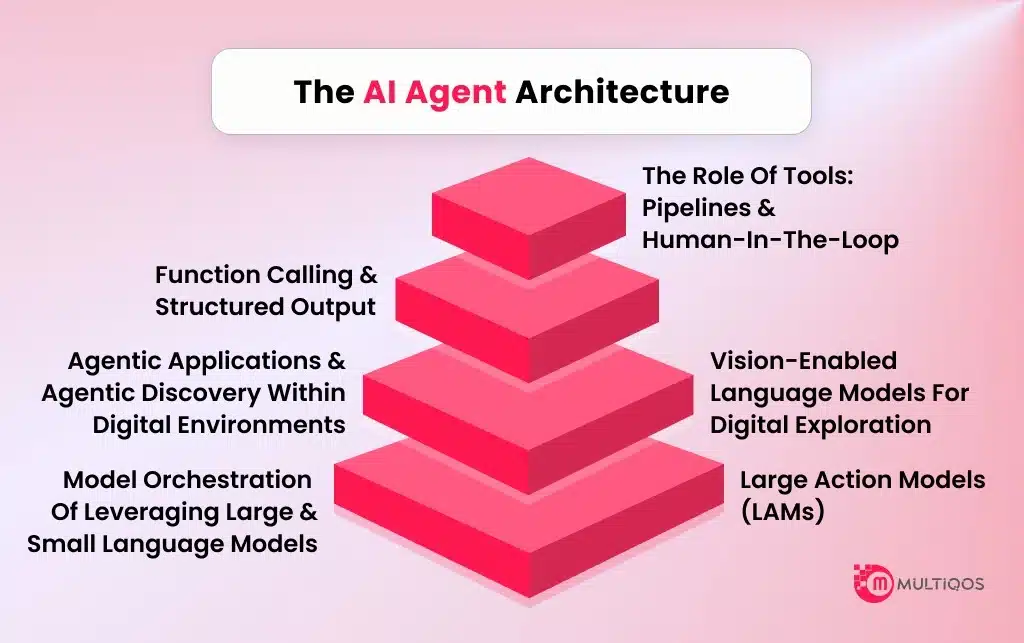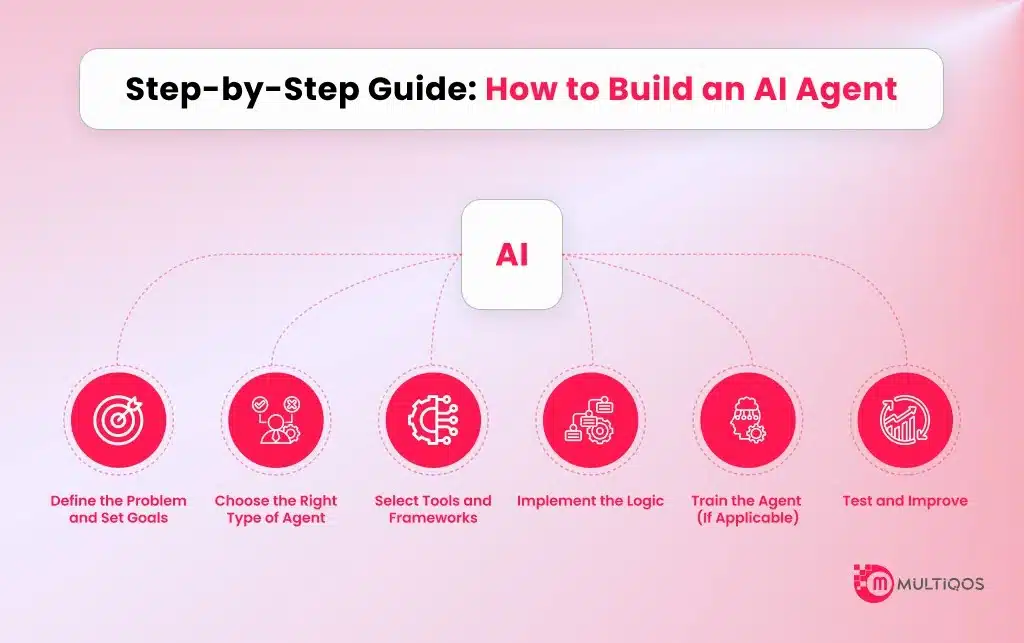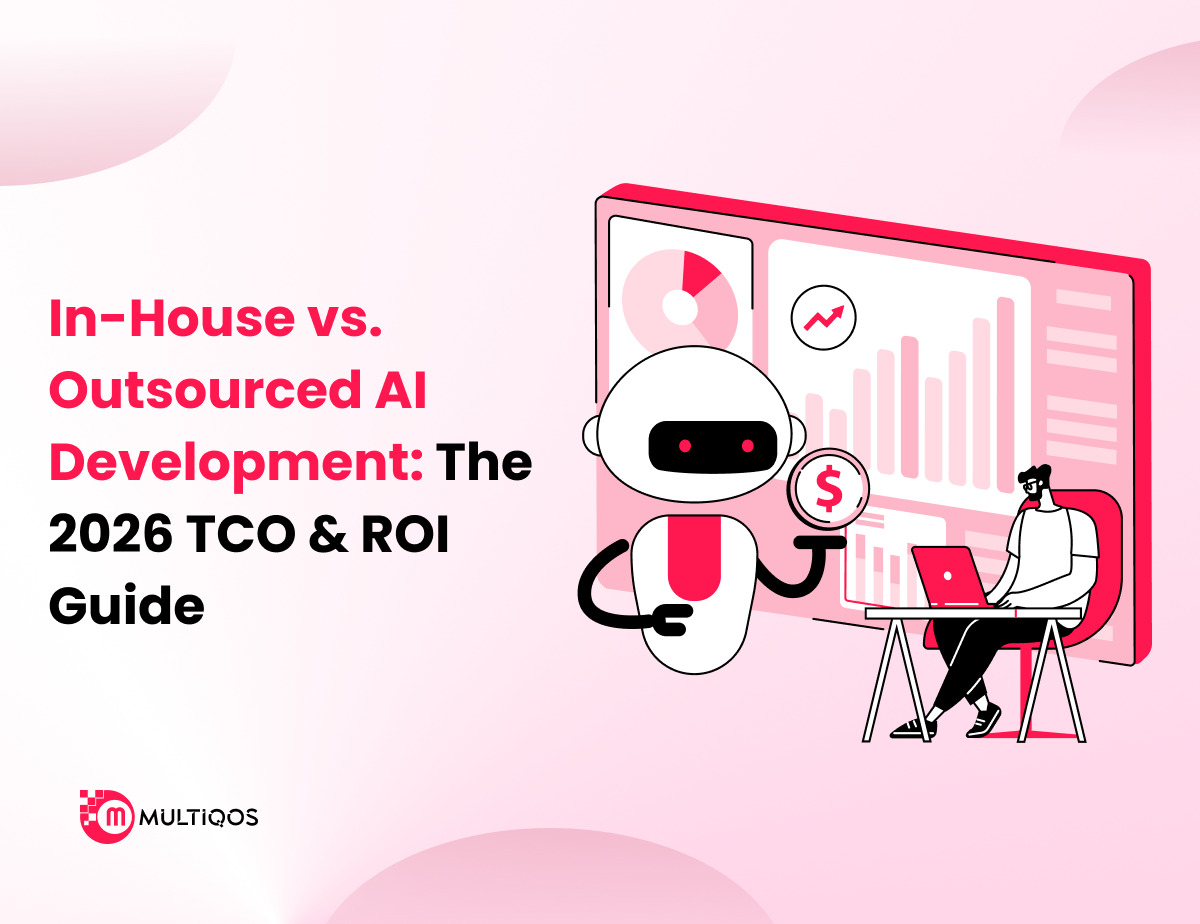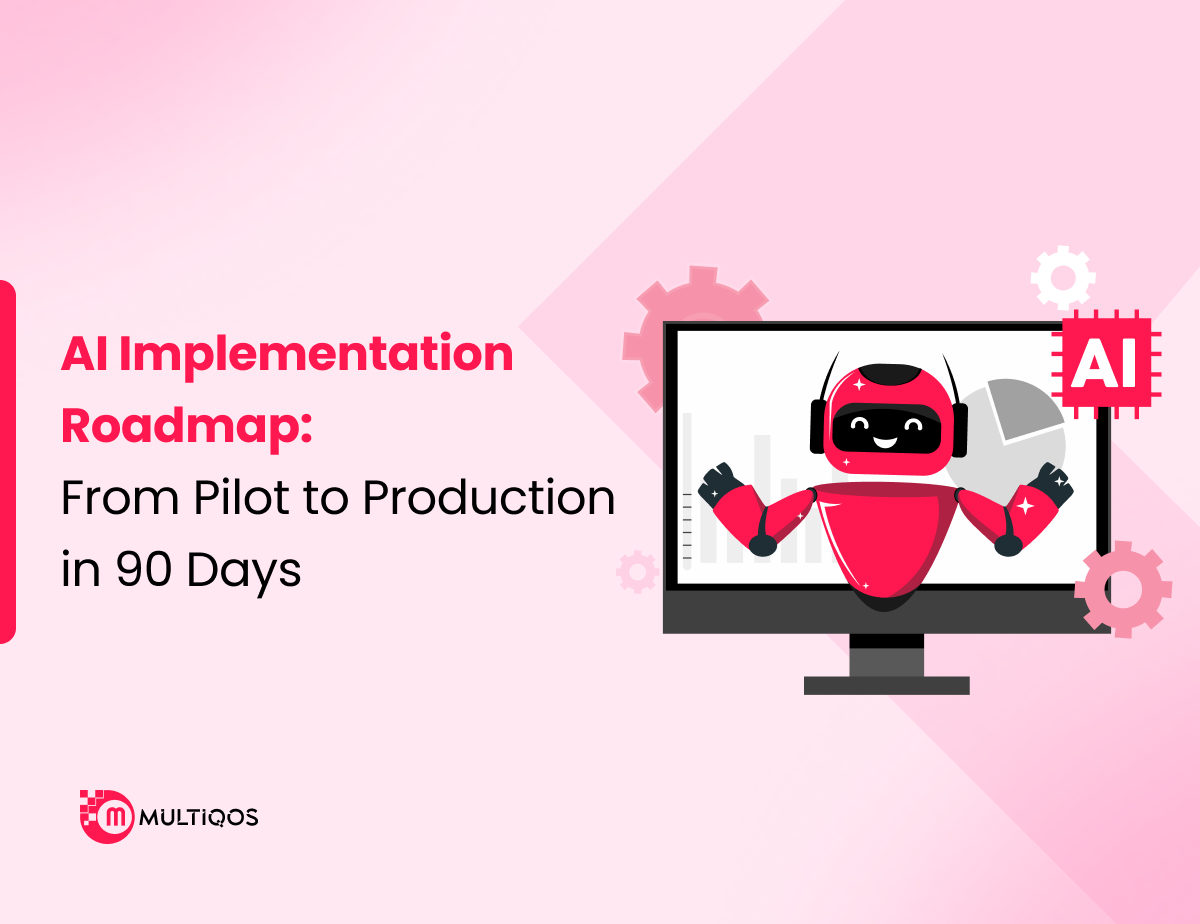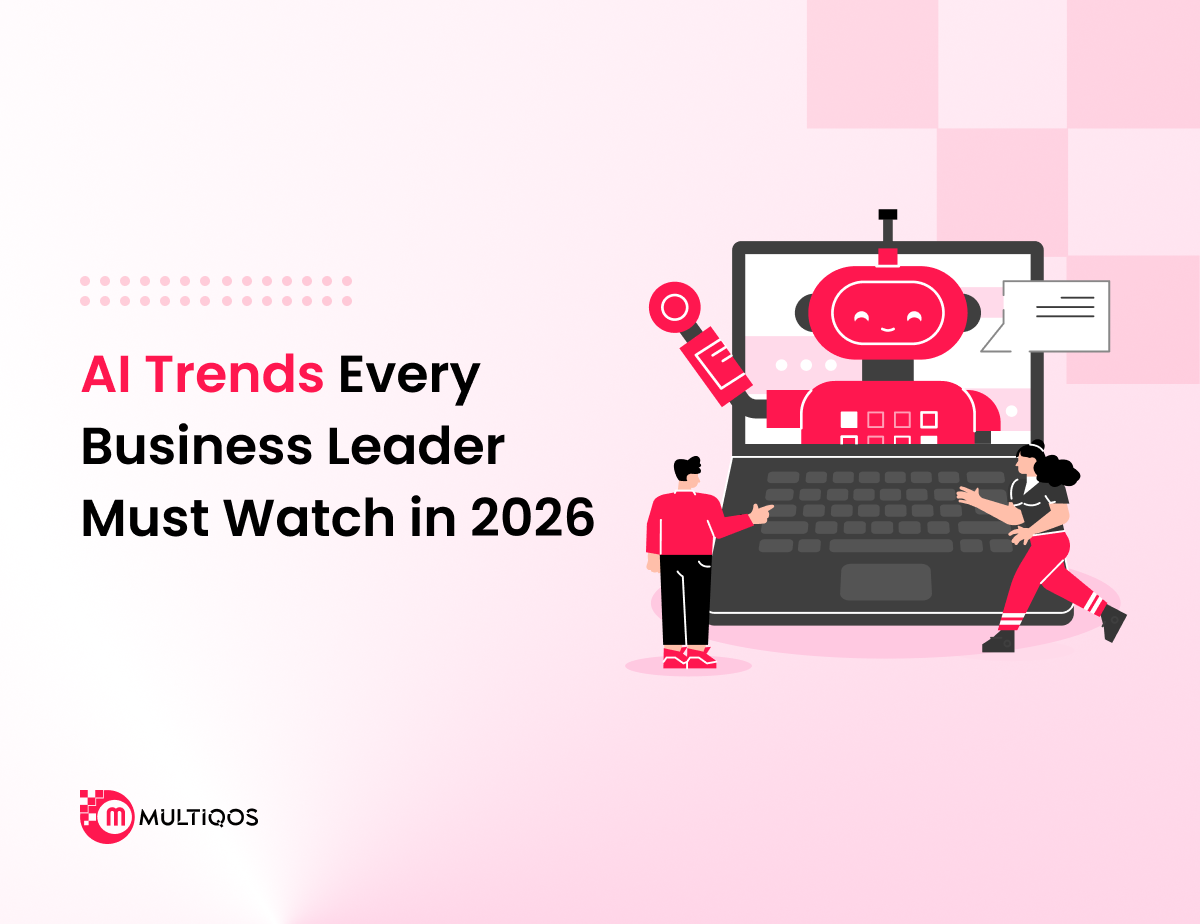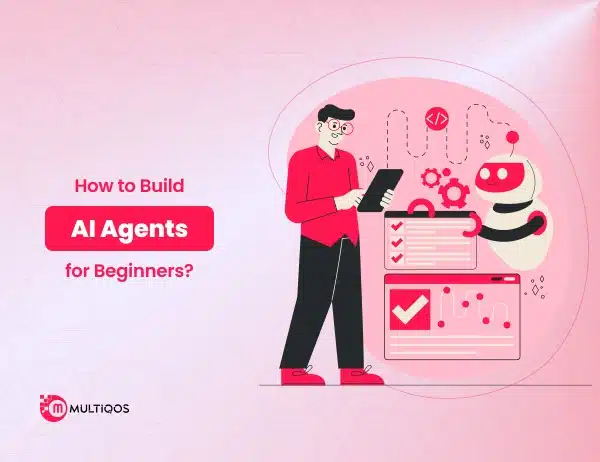
Table of Content:
- Introduction
- What Is an AI Agent?
- Basic AI Agent Architecture
- Tools to Build AI Agents
- Programming Languages for AI Agents
- Step-by-Step Guide: How to Build an AI Agent
- Simple AI Agent Project Ideas
- Common Mistakes When Building AI Agents
- Practical Tips for Beginner AI Developers
- Best Resources to Learn AI Agent Development
- Conclusion
- FAQs
Summary :
How to Design AI Agents for Beginners is a full guide aimed at making newbies get involved in knowing and developing their first agents in AI. It includes fundamental concepts such as AI agents categories, basic architecture, basic tools , and a step-by-step guide to implement simple but useful agents. The blog also contains useful project ideas, common mistakes you should avoid, and tips on how to learn faster.
If you happen to be a Python coder or are interested in no-code options, this guide covers it all, and you should have all you need to begin gallivanting across your AI agent development adventure.
Introduction
AI is developing too fast, and one of the most interesting developments is AI agents. If you are an inquisitive student, a novice developer, or anyone else who wants to explore the world of automation, this is a great place to start. This guide helps you author your first AI agent from scratch and imbues you with the foundational understanding required to confidently move forward.
What Is an AI Agent?
AI agent is an object that is capable of observing its environment and taking actions, for the purpose of accomplishing its goals. To understand what is an AI agent, think of it as a digital entity capable of observing its surroundings and responding intelligently. These agents can be simple (such as a chatbot that returns preprogrammed responses) or complex (such as a self-driving car that is always making decisions in response to incoming real-time data). AI agents are classified in various ways such as reactive, goal based, utility based, and learning agents.
Understanding how AI agents make decisions is essential. For most software agents, we see perception-action, where the agent receives input from its environment, processes that input, and then acts according to some rules, logic, or learned behaviors. This decision-making process is a core component of many solutions offered through AI development services, enabling agents to perform tasks intelligently and autonomously.
Basic AI Agent Architecture
On the upper level, a basic AI agent includes:
- Sensors (input layer): Collects data from the environment.
- Processing unit: Where decisions are made using algorithms or models.
- Actuators (output layer): Execute actions in the environment.
When you are beginning with AI agents, this is a good idea: start with a simplified architecture, and explicit linking between parts, in order to understand to role of each part. Creating a reactive AI or goal based AI allows beginners to understand basic concepts without getting in over their head.
Tools to Build AI Agents
Several open-source and commercial tools make AI agent development accessible:
- LangChain for LLM-based agent behavior
- OpenAI API for integrating large language models
- Transformers by Hugging Face for pretrained models
- Python libraries like spaCy, scikit-learn, and ChatterBot
The proper tools to build AI agents will make your life much easier and allow you to concentrate on the logic and design, instead of the low-level coding details.
Your starting point may be a basic chatbot or you may have more advanced plans, but creating a project with an AI agent development company will help guide you and we’ll make sure best practises are in place right from the beginning. They provide tools, frameworks, and skill to take a simple notion and convert it into a working AI agent.
Programming Languages for AI Agents
Python is the most common language for AI agent development, as it is easy to read and there are a wide variety of packages and libraries. Others include:
- JavaScript (for browser-based or chatbot agents)
- Java (often used in academic AI models)
- C++ (used in high-performance AI applications)
But to start, coding AI agents with Python is the way to go for beginners, you have libraries and documentation and a community.
Step-by-Step Guide: How to Build an AI Agent
Let’s explore the steps to build an AI agent that can act autonomously and help solve real-world problems.
1. Define the Problem and Set Goals
Start with a clear objective. Ask yourself: What task should the AI agent perform? Whether it’s answering FAQs or playing tic-tac-toe, defining the goal gives you a direction.
2. Choose the Right Type of Agent
Decide between:
- Reactive agents: They provide feedback immediately to stimuli (e.g., a chatbot).
- Goal-based agents: Make decisions based on desired outcomes.
- Autonomous agents: You’ll be surprised to know that, Autonomous agents adapt with time and demands for minimal human intervention.
Creating autonomous AI agents from scratch involves more complexity but offers valuable learning opportunities.
3. Select Tools and Frameworks
Install the tools needed based on your agent’s purpose. For example:
- Use LangChain and OpenAI API for language agents.
- Use TensorFlow for reinforcement learning-based agents.
4. Implement the Logic
This is where the fun begins. Use Python to build your logic. You can define conditionals for reactive agents or use search algorithms for goal-based behavior.
If you’re looking for a hands-on experience, follow an AI agent development coding tutorial on GitHub to see working AI agent examples.
5. Train the Agent (If Applicable)
When it comes to learning agents, make sure you have sufficient knowledge about how to train an AI agent. This involves feeding data, defining rewards, and letting the agent iterate through multiple simulations to improve performance.
6. Test and Improve
Create test scenarios. Note how your agent performs and identify areas for improvement. You’re taught hands-on debugging and optimization in this stage.
Simple AI Agent Project Ideas
Looking for inspiration? Here are some simple AI agent development project ideas:
- A rule-based chatbot for answering student FAQs
- A recommendation agent for book or movie suggestions
- A reminder bot that responds to calendar events
- A personal finance tracker that categorizes expenses
These are excellent AI agent use cases for beginners and don’t require advanced AI knowledge to build.
Common Mistakes When Building AI Agents
Beginners often encounter a few pitfalls:
- Skipping planning: Rushing into coding without clear goals
- Overcomplicating logic: Trying to build an all-knowing agent from day one
- Neglecting testing: Skipping test scenarios leads to unstable performance
Avoiding these common mistakes when building AI agents helps save time and ensures steady learning.
Practical Tips for Beginner AI Developers
Here are some practical tips for beginner AI developers:
- Focus on small, functional agents before scaling complexity.
- Repurpose open-source templates and customize them to fit your needs.
- Participate in forums and Discord groups related to AI agent creation.
- Keep your code clean to allow easy testing.
Best Resources to Learn AI Agent Development
If you’re eager to dive deeper, here are some best resources to learn AI agent development:
- OpenAI Cookbook
- LangChain documentation and starter templates
- FreeCodeCamp’s AI tutorials
- YouTube channels like CodeBullet and Sentdex
From these resources, you can learn everything whether you’re a beginner or require advanced tutorials.
Conclusion
Learning how to create an AI agent is a rewarding process. With the right mindset, tools, and support, anyone can start experimenting with simple logic and gradually progress to more advanced systems. This guidwe outlined the key steps, tools, and ideas to make your journey into AI agent development for beginners clear and approachable.
Experiment with creating both reactive and goal-based agents as you develop your abilities. Each one will expand your knowledge of intelligent systems, potentially with new applications in your personal or professional life— if you’re thinking of partnering with an AI/ML development company to build and scale solutions, most of the projects will help you there.
Frequently Asked Questions
An AI agent is a program that can observe its environment, make decisions, and take actions to achieve a goal, just like a digital assistant that responds intelligently based on the situation.
You can find tutorials on YouTube, GitHub, and platforms like FreeCodeCamp, Coursera, and the OpenAI Cookbook.
Collaborating with an AI agent development company can help you build smarter solutions faster and avoid common beginner mistakes, especially for larger or business-focused projects.
Yes, there are no-code platforms that let you create simple AI agents. However, learning the basic concepts of AI agent development will provide you more control and high-end flexibility.
Reactive agents react directly to inputs with no long-term consideration, goal-based agents make choices in order to achieve certain objectives.
Get In Touch

